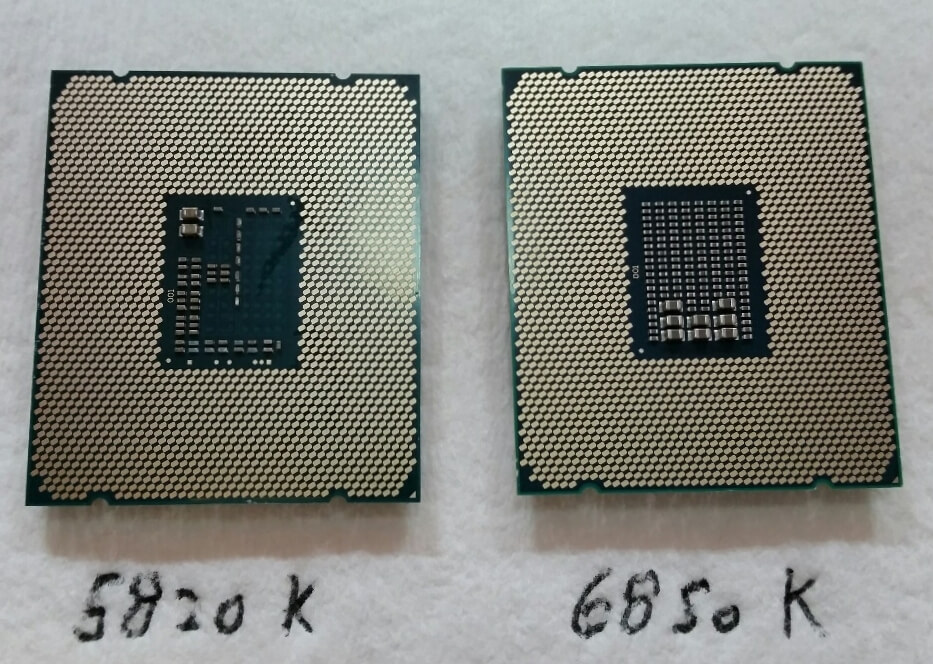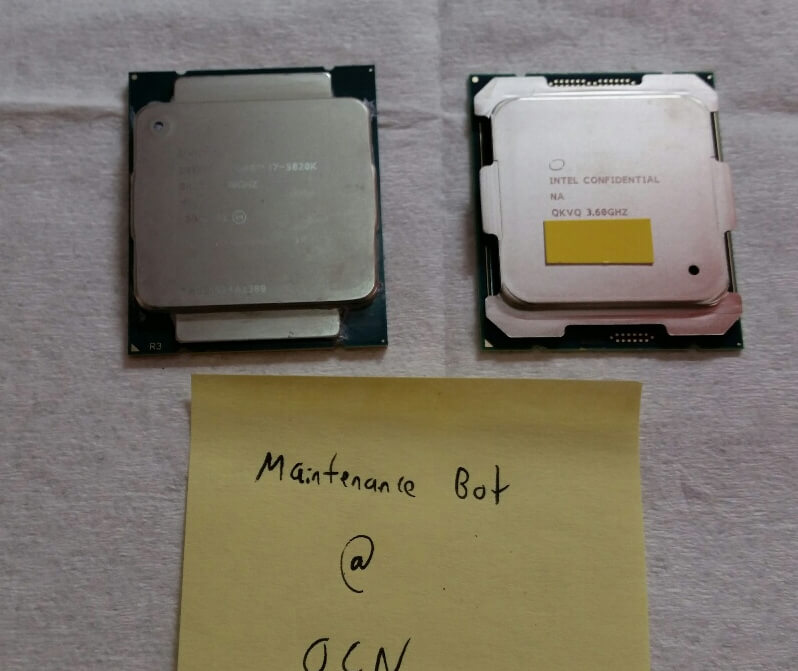
Intel’s next enthusiast-grade line of processors, dubbed Broadwell-E, is due out sometime this year. Four chips are expected – the Core i7-6800K, i7-6850K, Core i7-6900K and Core i7-6950X – and thanks to a user from the Overclock.net forums, we’ve got an early look at what the 6850K is capable of.
A user by the name of Maintenance Bot has posted photos and benchmarks of the 14-nanometer Broadwell-E part which features six cores and 12 logical threads. The engineering sample is clocked at 3.60GHz by default although for the purpose of testing, it was overclocked to 4.2GHz to match the speed of the 5820K it was compared against.

Also see: Intel 'Kaby Lake' Core i7-7700K CPU details leaked in benchmark results
Before jumping into testing, Maintenance Bot measured the two chips and found the newer model is just 1.12mm thick versus the chunky 5820K at 1.87mm. Eagle-eyed viewers may also notice a new IHS (integrated heat spreader).
Running a 32M calculation in Super Pi mod1.5 XS, the 6850K completed the task in eight minutes and 27.854 seconds compared to eight minutes and 38.886 seconds from the current-generation chip. In Cinebench R15, the new chip turned in a score of 1,311 versus 1,191 on the older chip. And in 3DMark Firestrike, the Broadwell-E CPU was good for a score of 9,440 while the Haswell-E chip received a score of 9,353.
All testing was performend on an ASRock X99 Extreme3 board with 16GB of Kingston DDR4 RAM and a Zotac GeForce GTX 980 Ti.
While the hexa-core i7-6850K certainly looks impressive, most enthusiasts are anxious to see what the 10 core / 20 thread Core i7-6950X can do. It’s expected to retail for around $1,500, firmly putting it out of reach of most hardware geeks on a budget.
Images courtesy Maintenance Bot
https://www.techspot.com/news/64698-intel-core-i7-6850k-broadwell-e-cpu-benchmarked.html